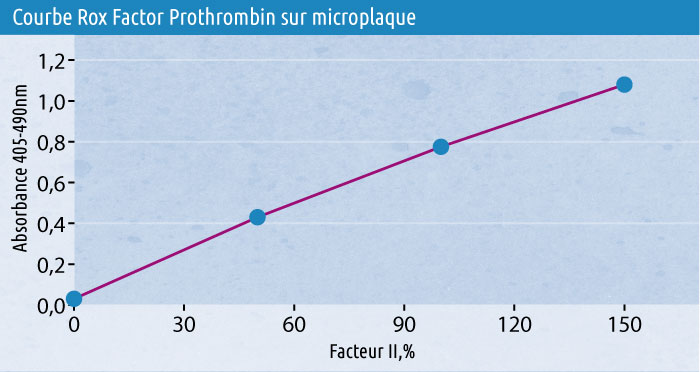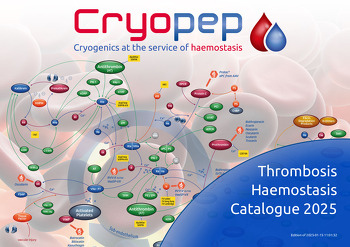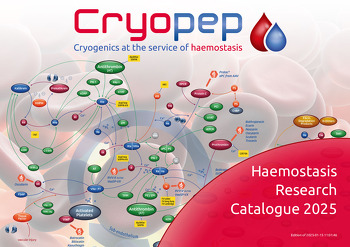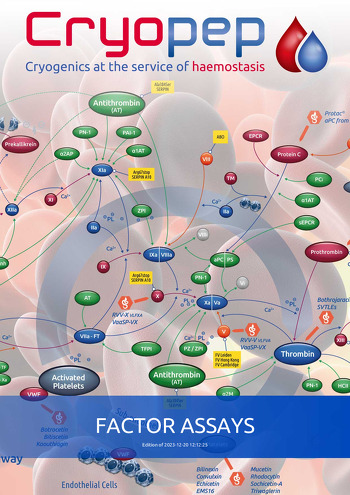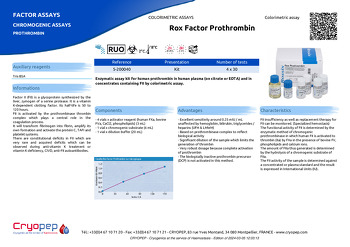HEMOSTASIS COAGULATION ROUTINE REAGENTS FACTOR ASSAYS CHROMOGENIC ASSAYS PROTHROMBIN
Rox Factor Prothrombin
Enzymatic assay kit for human prothrombin in human plasma (on citrate or EDTA) and in concentrates containing FII by colorimetric assay.
Advantages
- Excellent sensitivity around 0.25 mIU / mL unaffected by hemoglobin, bilirubin, triglycerides / heparins (UFH & LMWH)
- Based on prothrombinase complex to reflect biological activity
- Significant dilution of the sample which limits the generation of thrombin
- Very robust dosage because complete activation of prothrombin
- The biologically inactive prothrombin precursor (DCP) is not activated in this method.
Informations
Factor II (FII) is a glycoprotein synthesized by the liver, zymogen of a serine protease. It is a vitamin K-dependent clotting factor. Its half-life is 50 to 120 hours.
FII is activated by the prothrombinase thrombin complex which plays a central role in the coagulation process.
It will transform fibrinogen into fibrin, amplify its own formation and activate the protein C, TAFI and platelet systems.
There are constitutional deficits in FII which are very rare and acquired deficits which can be observed during anti-vitamin K treatment or vitamin K deficiency, CIVD, anti-FII autoantibodies.
Documentation
Download the product sheetPrice list, safety data sheets and notices are accessible to our registered customers.
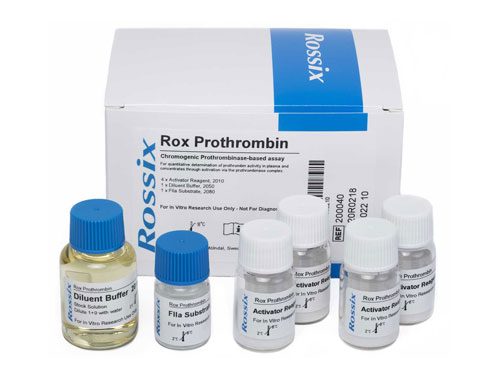
Colorimetric assay







References
| 5-200040 | Kit | 4 x 30 tests |












